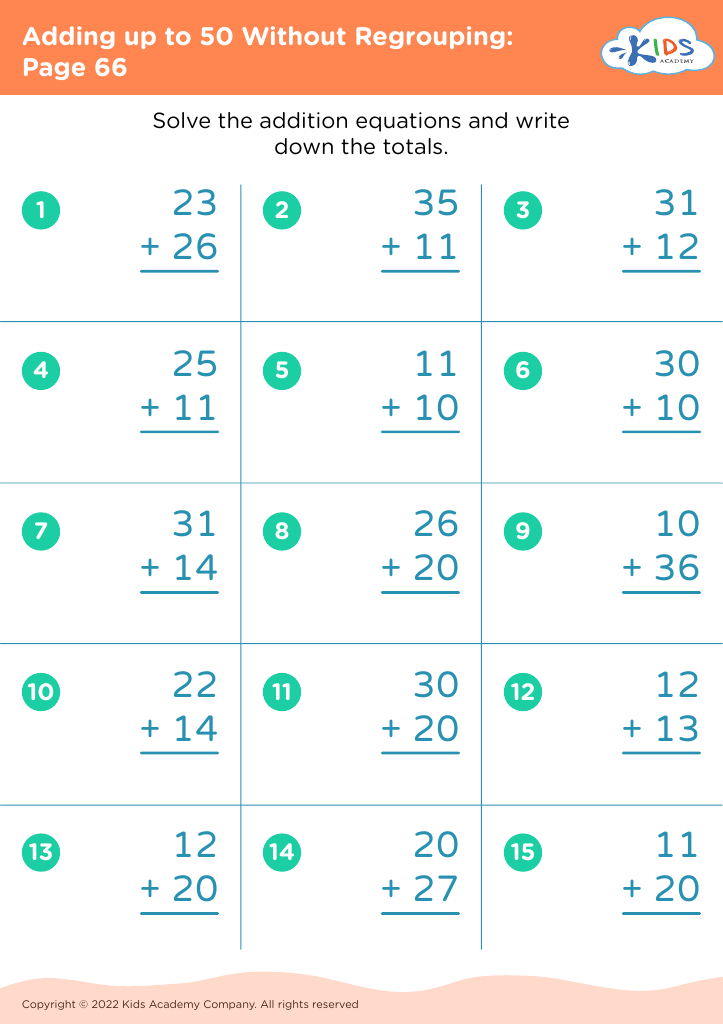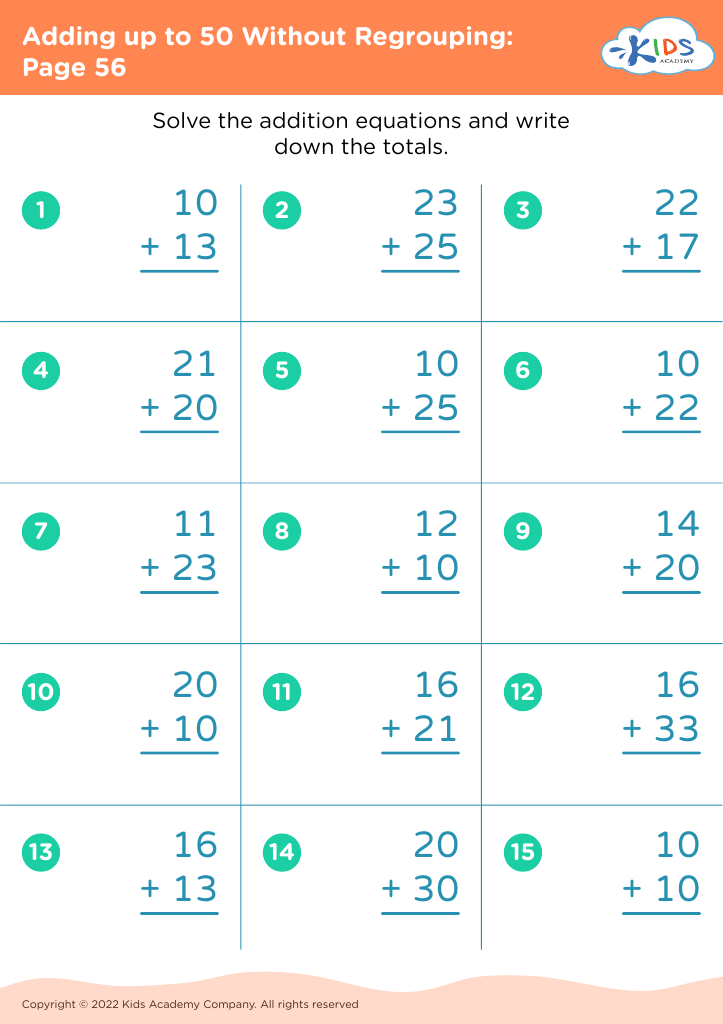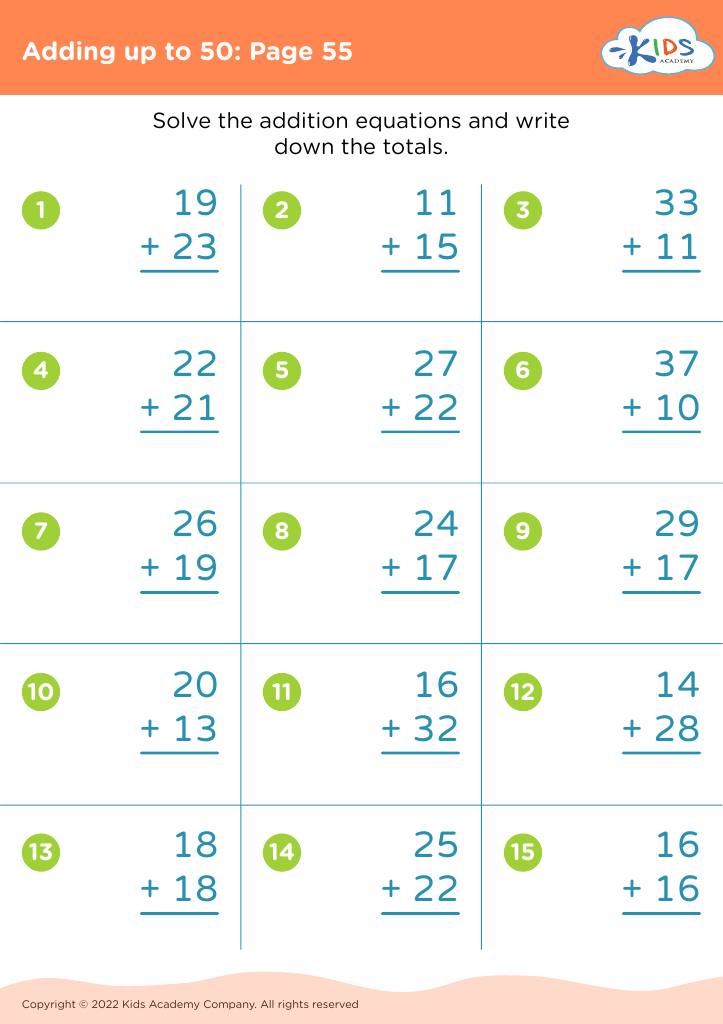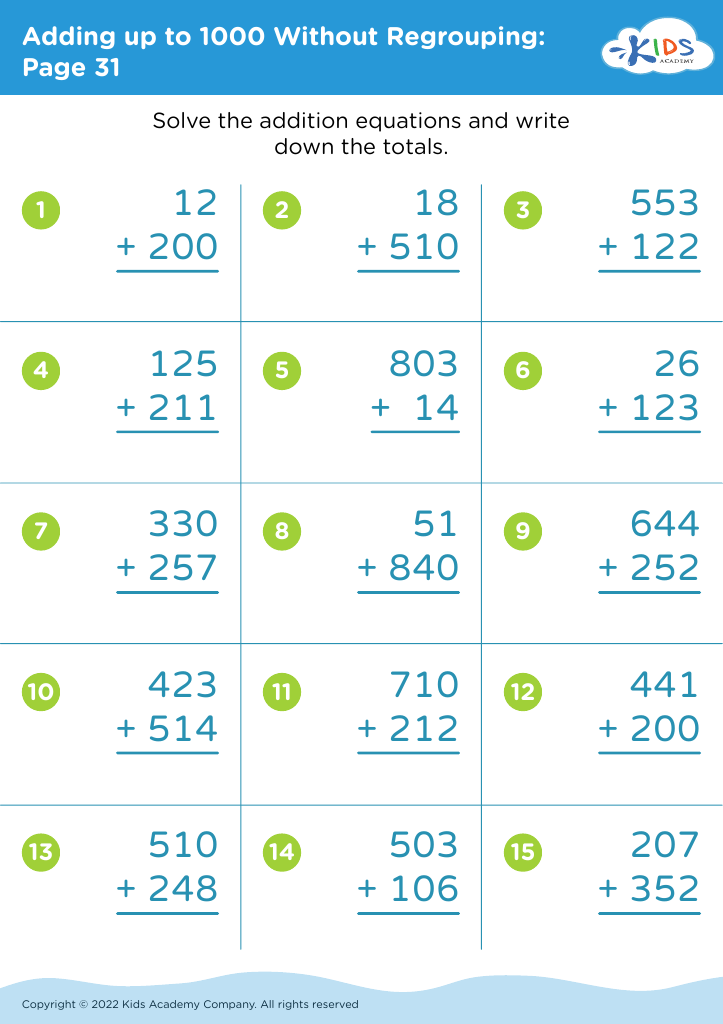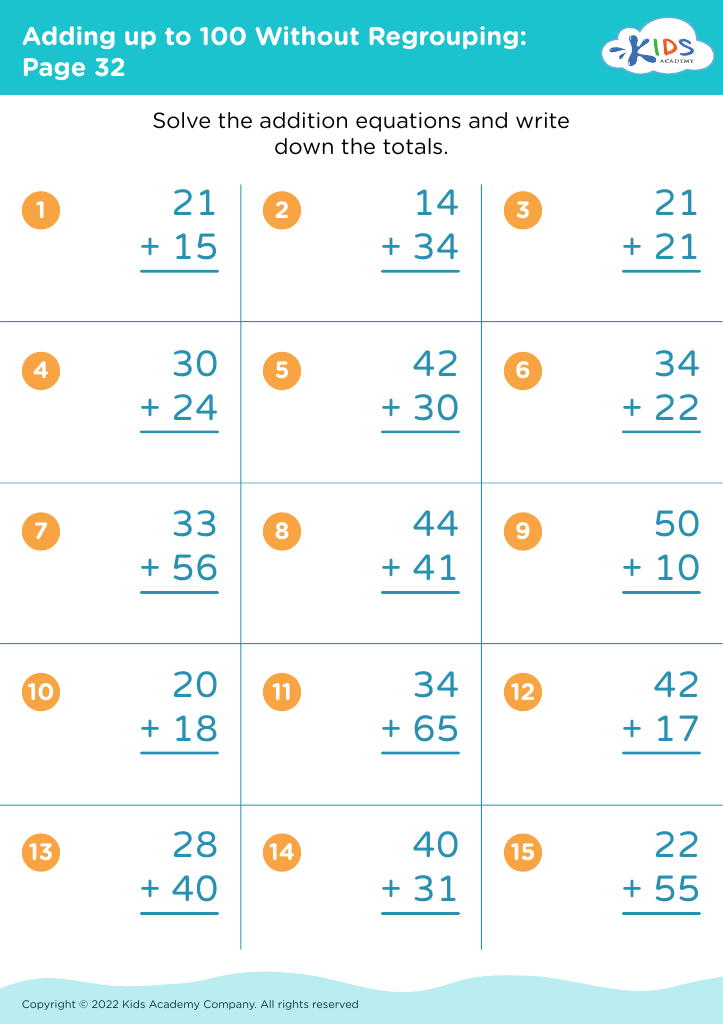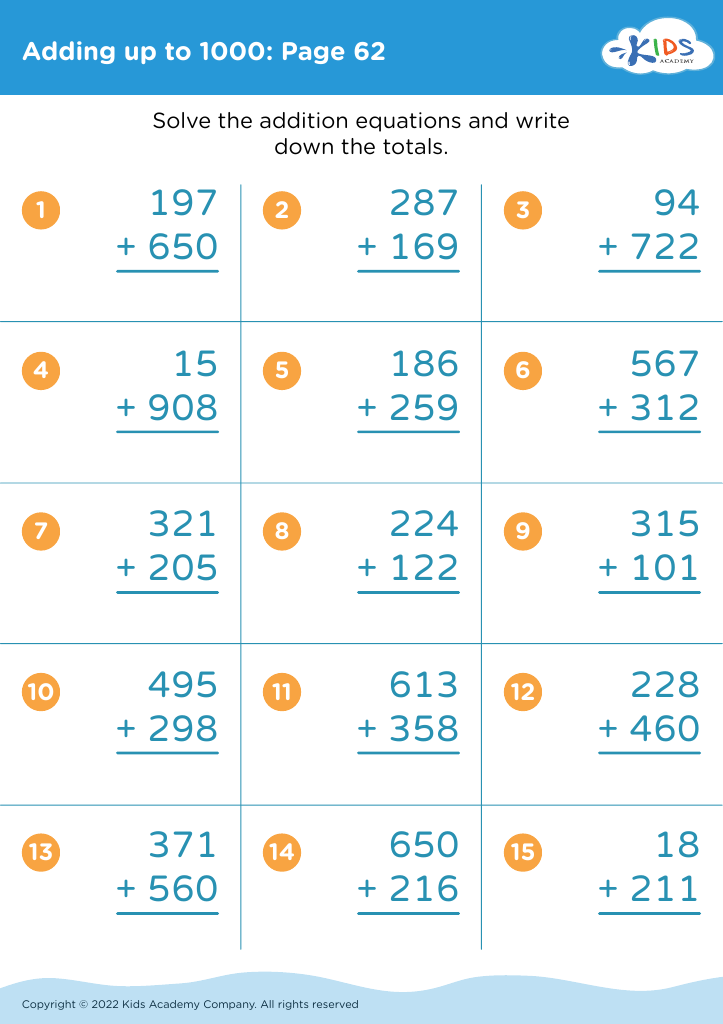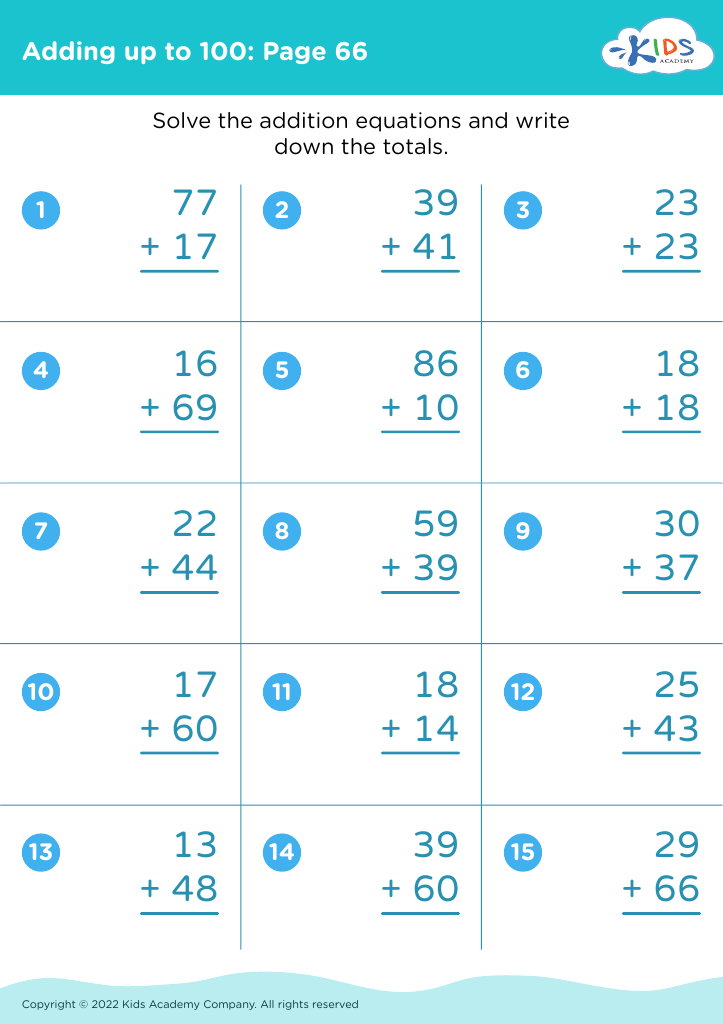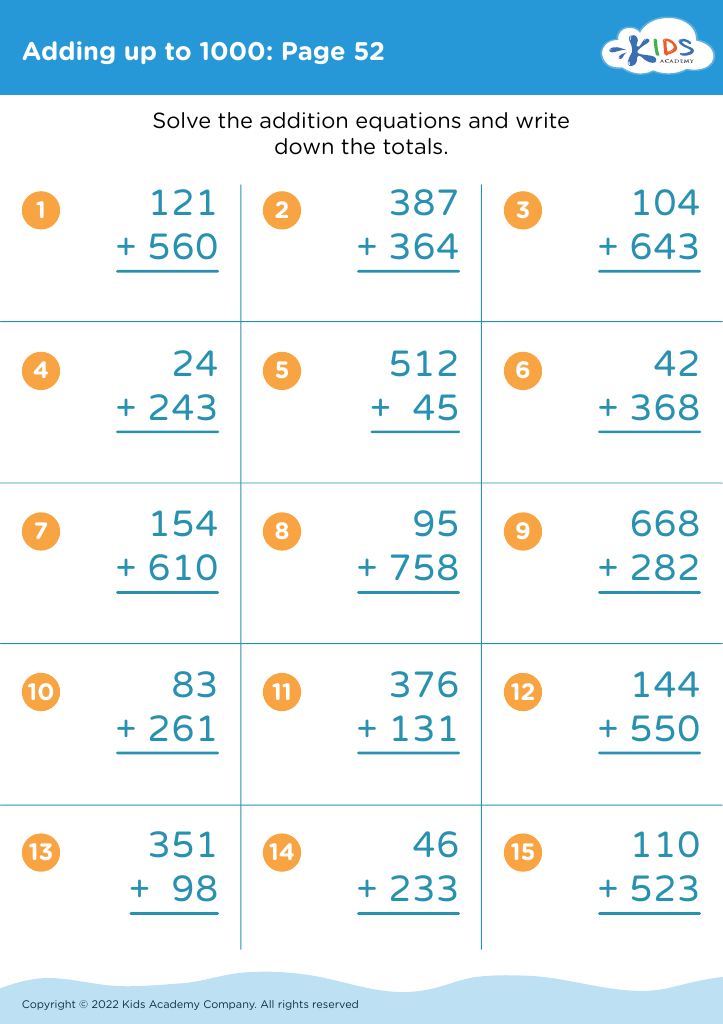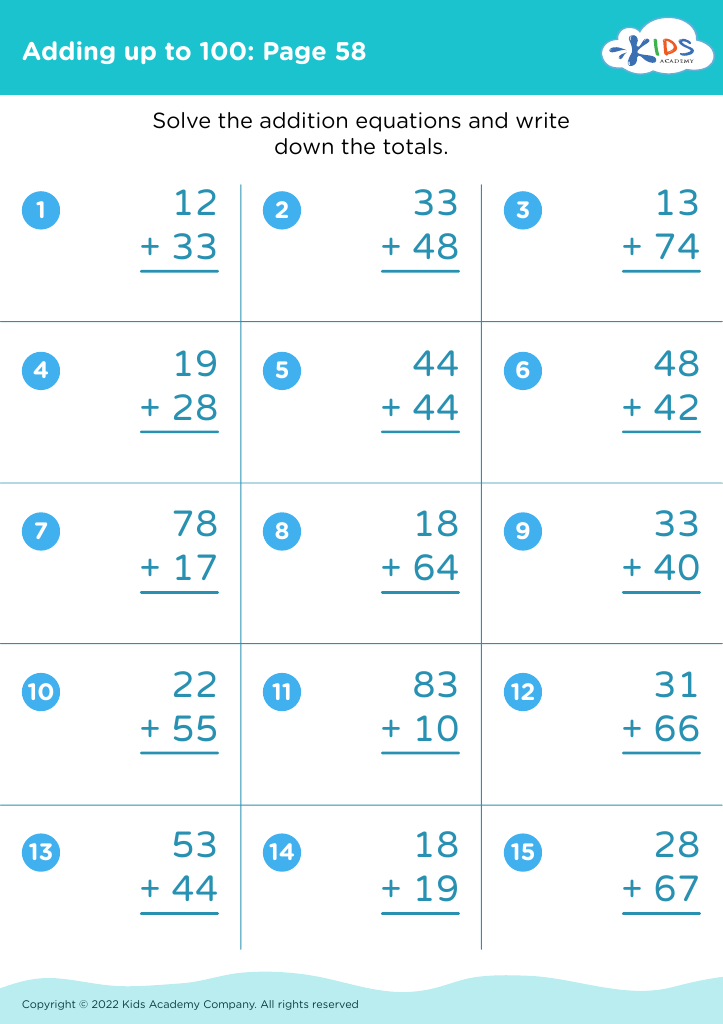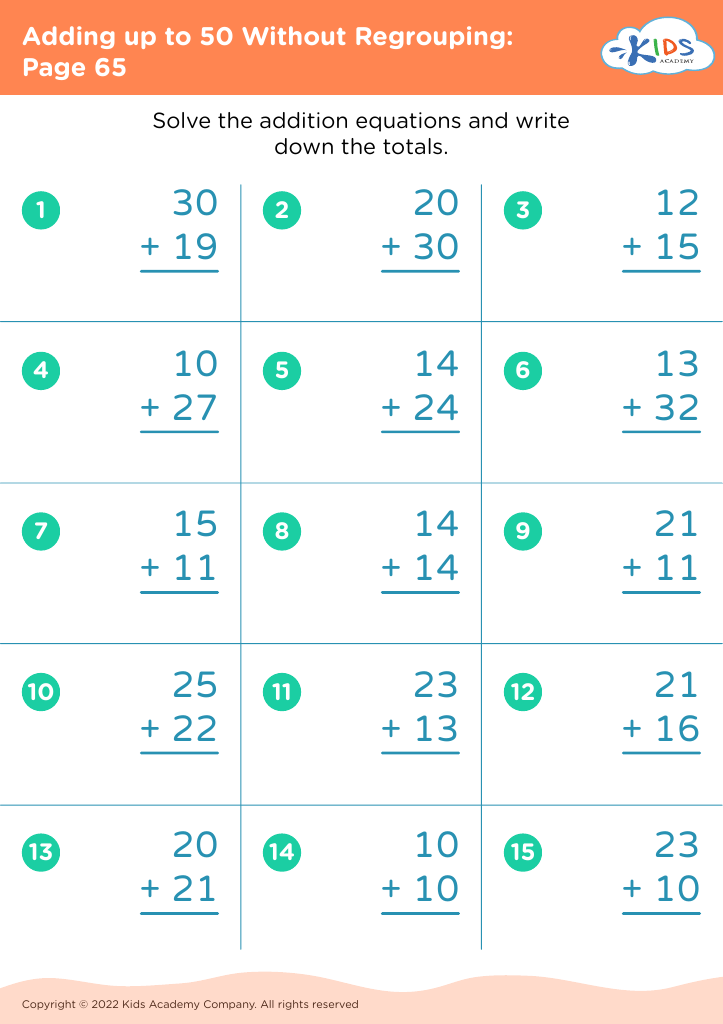Understand fractions Math Worksheets for Ages 3-7
21 filtered results
-
From - To
Discover our "Understand Fractions Math Worksheets" designed specifically for ages 3-7! These engaging and colorful resources introduce young learners to the world of fractions in a fun and interactive way. Each worksheet employs a variety of activities, including visual aids and hands-on tasks, to help children grasp the concept of parts and wholes. Tailored to accommodate different learning styles, our materials are ideal for reinforcing classroom instruction or supporting at-home learning. Foster a solid foundational understanding of fractions early on, promoting confidence and enthusiasm in math. Explore our enriching worksheets and watch your child's mathematical skills flourish!
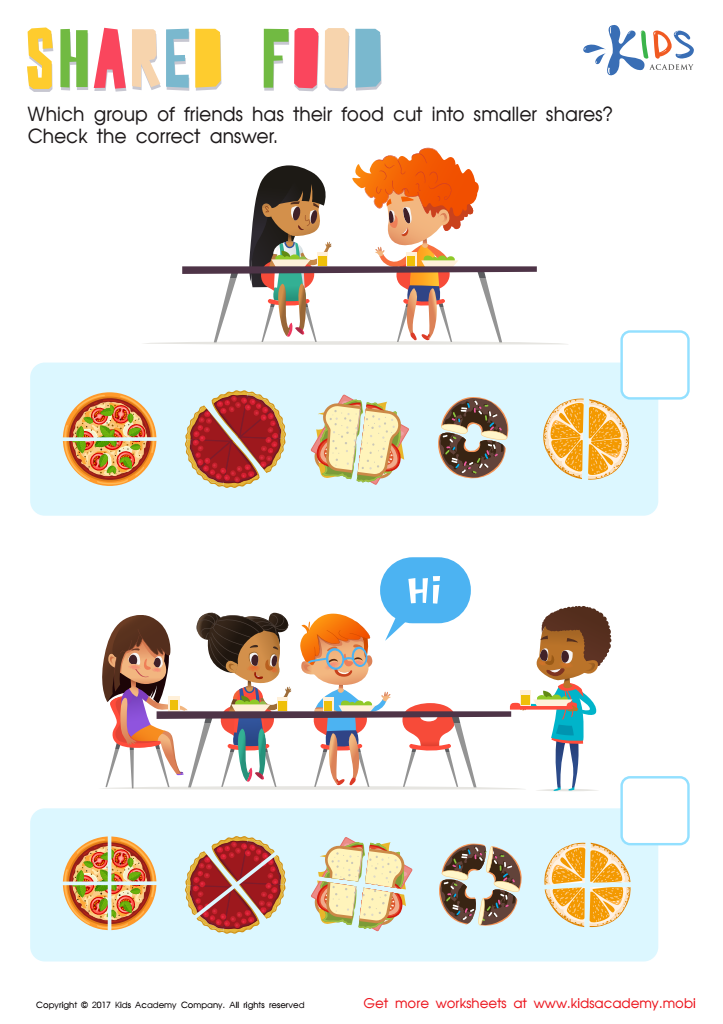

Shared Food Worksheet
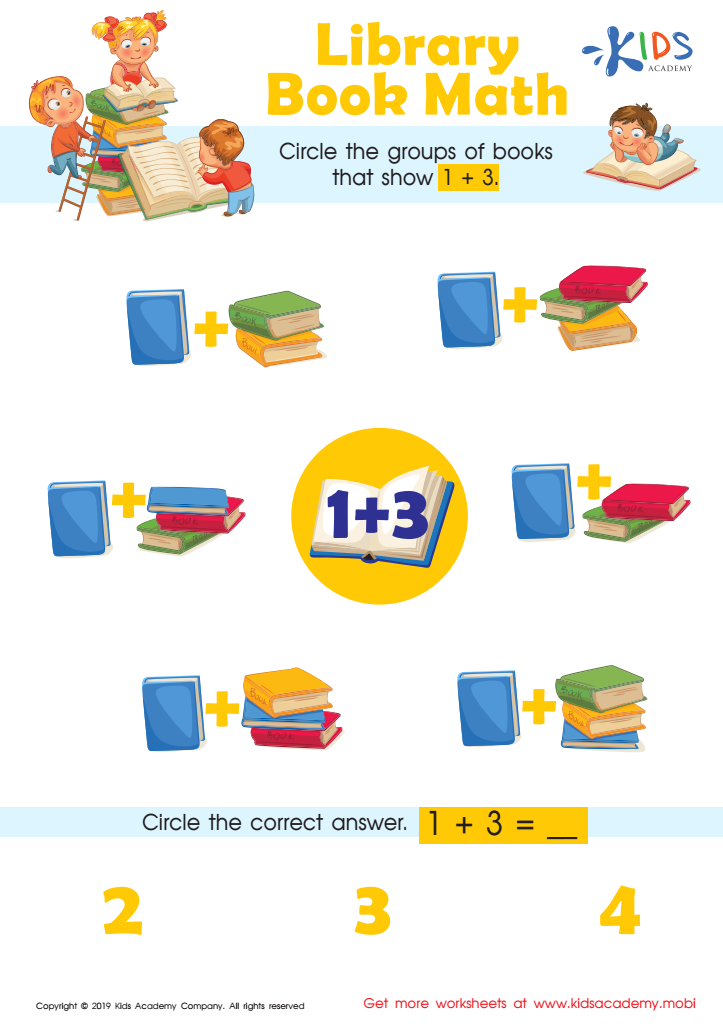

Library Book Math Worksheet
Understanding fractions is essential for children aged 3-7, as it lays the groundwork for more advanced mathematical skills and critical thinking. During this stage, children are naturally curious and are developing their cognitive skills, making it the perfect time to introduce concepts like fair sharing and proportional reasoning through fractions. Learning fractions at a young age helps children make sense of their world, such as dividing food, sharing toys, or understanding portions.
Parents and teachers should care about teaching fractions as it cultivates foundational skills in early numeracy, promotes problem-solving, and enhances logical reasoning. Engaging children in hands-on activities, such as using pizza slices, measuring ingredients, or playing games involving fractions, not only makes learning fun but also relevant to their everyday experiences.
Moreover, early exposure to fractions prepares children for future mathematical concepts and disciplines in their education. A strong grasp of fractions fosters confidence and resilience in mathematical problem-solving, helping to eliminate math anxiety as they advance in their studies. Thus, prioritizing fraction understanding is a critical investment in children’s academic success and everyday life skills.
 Assign to My Students
Assign to My Students

